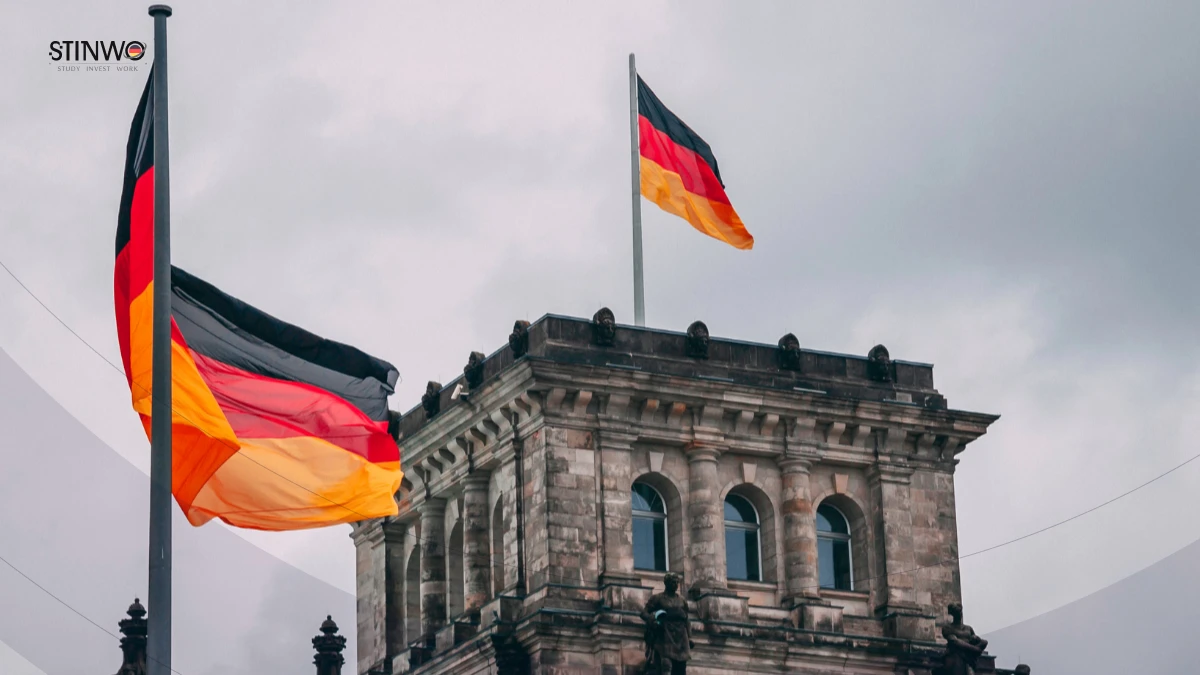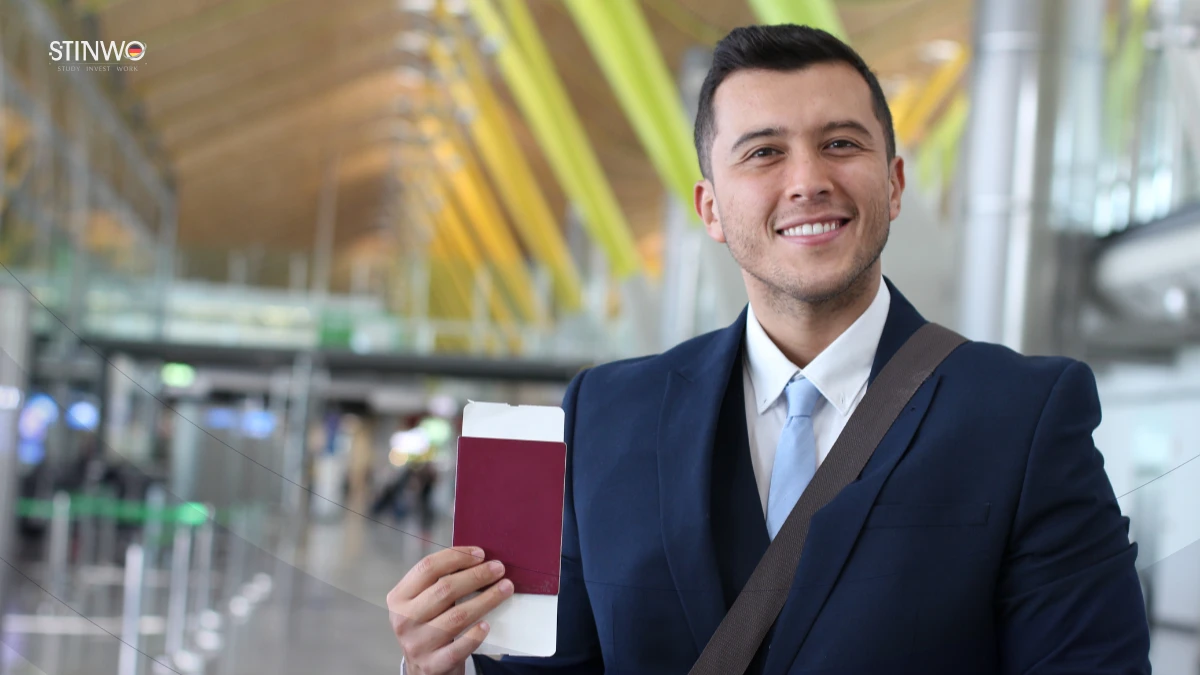A settlement permit in Germany is a permanent residence title that allows non-EU citizens to live, work, and enjoy unrestricted rights in Germany. If you are currently residing in Germany on a temporary residence permit and wish to stay permanently, obtaining a settlement permit could be the right step for you.
Benefits of a Settlement Permit in Germany
Germany is one of the most attractive countries for professionals, students, and entrepreneurs seeking a stable and prosperous future. If you plan to build a long-term life in Germany, obtaining a settlement permit is an excellent step toward security and integration. This permit offers non-EU citizens the opportunity to reside in Germany permanently, eliminating the need for continuous visa renewals and opening up many career and social benefits.

With a settlement permit, you gain unrestricted access to the German labor market, allowing you to work in any profession or even establish your own business. It also provides social security benefits, including healthcare and pensions, ensuring financial stability for you and your family. Additionally, it brings you one step closer to obtaining German citizenship, which grants full legal rights and privileges within the European Union.
If you’re planning to stay in Germany for the long term, understanding the benefits of a settlement permit is essential. Below, we explore why this permit is highly sought after and how it can positively impact your life in Germany:
- Unlimited residence in Germany.
- Freedom to work or start a business.
- No renewal requirement like temporary residence permits.
- Eligibility for German citizenship after a certain period.
- Easier family reunification options.
- Access to social security benefits, including healthcare and pensions.
- Opportunity to apply for loans and mortgages under favorable conditions.
- Enhanced job market access without needing employer sponsorship.
- Protection under German residency laws, offering long-term security.
Who Can Apply for a Settlement Permit?
The eligibility for a settlement permit in Germany depends on various factors, including employment status, duration of stay, and financial stability. Here are the main categories of applicants:
Skilled Workers
According to Section 18c of the Residence Act (AufenthG), skilled workers eligible for a settlement permit include:
- Individuals with qualified vocational training recognized in Germany.
- Individuals with a German or recognized foreign university degree.
- EU Blue Card holders.
- International researchers under EU Directive 2016/801.
Requirements:
- Have held a residence permit under Sections 18a, 18b, 18d, or 18g for at least three years.
- Financial independence without state benefits.
- At least 36 months of contributions to statutory pension insurance.
- Employment in a job relevant to your residence title.
- B1 German language proficiency (CEFR).
- Knowledge of German law and society.
- Sufficient living space for you and your family.
- No criminal record and compliance with German laws and regulations.
EU Blue Card Holders
EU Blue Card holders can obtain a settlement permit in Germany under more relaxed conditions (Section 18c(2) AufenthG):
- Must have worked in Germany for at least 27 months and contributed to pension insurance.
- A1 German language proficiency; with B1 German, the period reduces to 21 months.
- Must meet basic integration and financial stability requirements.
- Must demonstrate continued employment or financial security.
Graduates of German Universities or Vocational Training Programs
Special provisions apply to those who have completed their education in Germany:
- Residence permit under Sections 18a, 18b, 18d, or 18g for two years.
- Employment in an approved occupation.
- 24 months of pension insurance contributions.
- B1 German proficiency and integration test.
- Sufficient living space.
- Proof of sustainable employment with a long-term contract.
Highly Skilled Workers
Highly skilled professionals, such as scientists or senior executives, can receive a settlement permit in Germany immediately upon arrival (Section 18c(3) AufenthG). They must:
- Prove their academic training and professional expertise.
- Demonstrate financial independence.
- Present an employment contract with a high salary.
- Have no history of dependency on social welfare.
Self-Employed Individuals
Entrepreneurs and freelancers can apply for a settlement permit (Section 21(4) AufenthG) after three years if:
- They have a valid residence permit for self-employment.
- Their business is successful and sustainable.
- They can financially support themselves and their family.
- They demonstrate economic benefit to Germany’s economy.
- They submit tax returns proving financial viability.
Spouses of Skilled Workers
Spouses (or registered partners) of skilled workers can obtain a settlement permit if they meet specific requirements designed to ensure stability and integration within Germany. This pathway allows spouses to gain long-term residency rights and enjoy many of the benefits that come with a settlement permit. Acquiring this permit provides them with unrestricted work rights, access to social benefits, and a secure future in Germany. Below are the key conditions they must fulfill:
- Their spouse has a settlement permit under Section 18c.
- They have lived in Germany for at least three years.
- They work at least 20 hours per week with a valid work permit.
- They possess B1 German proficiency.
- They pass the “Living in Germany” test.
- They provide proof of stable living conditions and financial independence.
Process of Applying for a Settlement Permit in Germany
Applying for a settlement permit in Germany is a crucial step for non-EU citizens looking to secure permanent residency in the country. The application process requires careful preparation, as authorities assess multiple factors, including your financial independence, employment status, language skills, and social integration. Understanding the application steps in detail can significantly improve your chances of a successful outcome.

Before applying, ensure that you have fulfilled the required residence duration and contributed sufficiently to the pension system, as these are key prerequisites. Gathering the necessary documents in advance and scheduling an appointment with the local foreigners’ authority (Ausländerbehörde) is essential for a smooth process.
While processing times vary depending on location, having a well-prepared application can help expedite your approval. Below, we outline the essential steps you need to follow when applying for a settlement permit in Germany:
- Check Your Eligibility: Ensure you meet the residence duration, financial stability, and language requirements.
- Schedule an Appointment: Visit your local foreigners’ authority (Ausländerbehörde) to apply.
- Pay the Application Fee: The cost varies, but it is approximately €150.
- Attend the Interview: Provide biometric data and answer questions about your application.
- Receive Your Settlement Permit: If approved, you will receive your permanent residence title.
- Plan for Long-Term Integration: Consider enrolling in additional German courses and professional development programs to ease cultural integration and career growth.
Prepare Required Documents
Gathering the necessary documents is a vital step in the settlement permit application process. Having all required paperwork ready ensures a smoother application and minimizes potential delays. German immigration authorities will carefully review your documents to verify your eligibility, financial stability, and compliance with integration requirements. Below is a comprehensive list of the essential documents you need to prepare before submitting your application:
- Valid passport
- Current residence permit
- Proof of employment or self-employment
- Pension insurance payment records
- German language certificate (B1 or A1 for EU Blue Card holders)
- “Living in Germany” test certificate
- Proof of accommodation
- Tax statements and bank statements to show financial stability
- Health insurance confirmation
Processing Time and Validity
Understanding the processing time and validity of a settlement permit in Germany is crucial for planning your long-term stay. While the process may seem lengthy, preparing your documents properly and meeting all requirements can help speed up the decision. Each application is assessed individually, and the timeline can vary depending on workload and administrative efficiency at the local foreigners’ authority (Ausländerbehörde).

Once granted, the settlement permit is permanent, meaning there is no need for renewal. However, maintaining your residency status requires compliance with certain conditions, such as continued residence in Germany and financial independence. Additionally, obtaining a settlement permit is a stepping stone toward German citizenship, which you may apply for after meeting the required residency period. Below, we explore how long the process takes and what to expect once you receive your settlement permit:
- The processing time for a settlement permit in Germany varies by location but usually takes 2 to 6 months.
- Once granted, the settlement permit is permanent.
- Holders may apply for German citizenship after a few years if they meet the naturalization requirements.
Final Thoughts
The settlement permit in Germany provides long-term security, work flexibility, and a path to German citizenship. If you meet the eligibility criteria, applying for a settlement permit can be a significant step toward making Germany your permanent home. Visit your local foreigners’ authority for specific guidance on your application. With a settlement permit, you enjoy nearly the same rights as German citizens, allowing you to build a stable future in one of Europe’s strongest economies. Start your application process today and secure your permanent residency in Germany!
